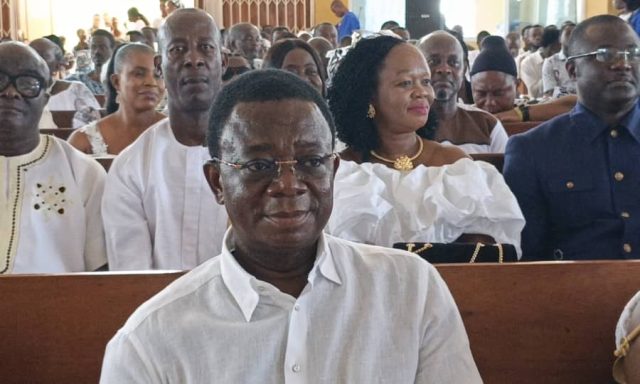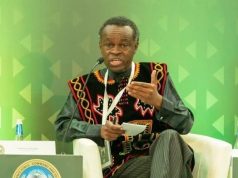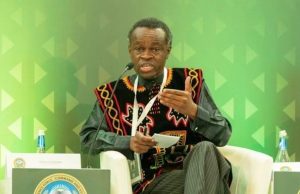In a powerful Easter Sunday testimony, former Ghana Cocoa Board (COCOBOD) CEO Dr. Stephen Kwabena Opuni declared his recent court acquittal after an eight-year legal battle as a manifestation of God’s grace, drawing parallels between Christ’s resurrection and his own vindication.
Surrounded by family, National Democratic Congress (NDC) regional executives, and supporters at the Presbyterian Church of Ghana in his hometown of Dormaa-Babianeha, Dr. Opuni recounted how his faith sustained him through the protracted trial. “This victory belongs to God. Though the ordeal tested us, it ultimately strengthened my belief in divine justice,” he told the congregation.
The High Court’s dismissal last month of financial misconduct charges against the former cocoa sector head marked a decisive end to a case that had loomed over his career. Prosecutors failed to substantiate claims of malfeasance during his tenure under former President John Mahama’s administration a verdict Dr. Opuni interprets as divine intervention.
Even during his legal struggles, the former CEO maintained philanthropic efforts, funding school construction projects as tributes to his late mother’s legacy. He used the Easter platform to caution against reckless accusations: “False claims can devastate lives. Ghana must prioritize truth and fairness in all spheres.”
Reflecting on national issues, Dr. Opuni contrasted the cocoa sector’s performance under successive administrations without directly naming current leadership. “The evidence is visible for all to assess,” he stated, urging citizens to evaluate the industry’s trajectory independently.
Now free from legal constraints, the emboldened former public servant signaled his intent to amplify community development initiatives. His Easter message fused personal redemption with broader social accountability, a testament to how faith and public service remain intertwined in Ghana’s socio-political fabric.
Dr. Opuni’s narrative transcends individual vindication, mirroring a recurring theme in African governance where legal battles often become proxies for political contests. His experience underscores the human cost of prolonged prosecutions and the resilience required to navigate them. As Ghana’s institutions evolve, this case may prompt reflection on balancing accountability with due process, a challenge many developing democracies grapple with amid competing pressures for justice and administrative efficiency.
Send your news stories to newsghana101@gmail.com
Follow News Ghana on Google News

















